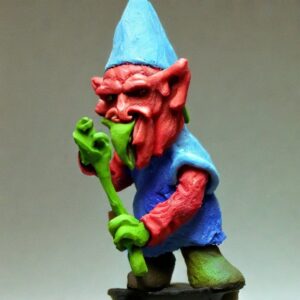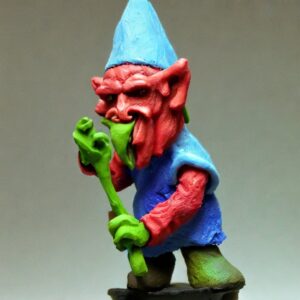In the last post, we talked about the attempted breakdown of the OGL. But that particular part of the saga appears to be at an end; so, without further ado, I present you…
Act VI: Open Gaming Strikes Back
 Honestly, no one expected this. After a really bad initial response to the backlash (featuring the now-immortal line “However, it’s clear from the reaction that we rolled a 1.”) which just added fuel to the fire, followed by a slightly less-bad response a week later, Wizards of the Coast walked back the initial plans for the OGL 1.1; instead, they announced a period of “playtesting” for a draft of the OGL 1.2.
Honestly, no one expected this. After a really bad initial response to the backlash (featuring the now-immortal line “However, it’s clear from the reaction that we rolled a 1.”) which just added fuel to the fire, followed by a slightly less-bad response a week later, Wizards of the Coast walked back the initial plans for the OGL 1.1; instead, they announced a period of “playtesting” for a draft of the OGL 1.2.
The draft was ultimately uninspiring of confidence; riddled with loopholes and failing to address the core issues raised with the original 1.1 draft, the only positive was a pledge to release some subset of the game’s core mechanics under the Creative Commons CC-BY license, a legally-robust and irrevocable license that requires only attribution. However, even that move was met with some skepticism, as the details of what would be placed under Creative Commons was suspect. During the period of discussion, a great number of third party publishers, virtual tabletop companies, Dungeon Masters, and players voiced their dissatisfaction with the 1.2 draft.
During this time, Paizo announced that the list of companies who were signing on to their competing ORC open license was growing into the thousands, and that they had sold through “an 8-month supply of our Pathfinder Core Rulebook in the last 2 weeks;” as well as making the Orc ancestry legal in all Pathfinder and Starfinder Society Organized Play games, further suggesting that it might be worthwhile to consider creating an orc character with a background in law, as a not-so-subtle reference. Kobold Press announced that their Project Black Flag would be playtesting at Gen Con in August of 2023, and MCDM began early work on their own system.
But on January 27, something happened surprised everyone.
Wizards of the Coast walked back everything.
More than “walked back,” actually; they went further than the original state. According to their announcement, the OGL 1.0a was being left “in place, as is. Untouched.” That would be shocking enough, but they took a step further by releasing the entire SRD 5.1 under Creative Commons Attribution 4.0 International (CC-BY-4.0), providing a hedge against any future Wizards of the Coast leadership changing their minds and attempting again to revoke the agreement. Dungeons and Dragons went from moving toward the most draconian (pun intended) third party license in gaming to having (as of now) among the most open third party licenses in gaming; a remarkable turnaround.
On one level, this is unsurprising. Their announcement notes:
Already more than 15,000 of you have filled out the survey. Here’s what you said:
- 88% do not want to publish TTRPG content under OGL 1.2.
- 90% would have to change some aspect of their business to accommodate OGL 1.2.
- 89% are dissatisfied with deauthorizing OGL 1.0a.
- 86% are dissatisfied with the draft VTT policy.
- 62% are satisfied with including Systems Reference Document (SRD) content in Creative Commons, and the majority of those who were dissatisfied asked for more SRD content in Creative Commons.
This is a remarkably unanimous showing from the TTRPG community (and compares quite well to the consensus social media opinion); and as they noted, “The feedback is in such high volume and its direction is so plain that we’re acting now” by ending the “playtest” of OGL 1.2 and doing what everyone was asking for. Still, it’s a surprise that the decision was made so immediately and so decisively. More unanimous outcry has happened before, and other companies have not made such immediate and decisive changes. And the statement was also much better—no blame language, no fluffiness, no nonsense, no “how do you do fellow kids” attempts at humor, no ambiguity; just “ok we hear you, we’re not doing it anymore and here’s how we’re proving we won’t.”
It is worth noting that parent company Hasbro also laid off a thousand employees this week, meaning that not everything is rosy in the world of Faerûn; but as for the OGL, while Hasbro and Wizards of the Coast initially misread their audience very poorly, they eventually did the right thing; and should be commended for it. While they are little more trustworthy than before, and the brand damage remains, the release to Creative Commons means that no amount of corporate nitwittery in the future can pull the rug out from under third party publishers. They’ve also set a pretty good pattern for the rest of the industry to follow in using Creative Commons; and the damage to their brand means that the number of people trying out non-D&D RPGs has already and will continue to increase. It seems to me that this bodes well, not only for Wizards of the Coast, but for the entire industry.
The dragon has been slain!




